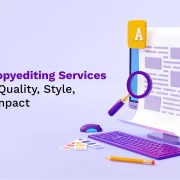
Instructional Design vs. Learning Experience Design: Key Differences
The eLearning industry has evolved so much over the last few years that it has completely revolutionized the approach to learning and how designers make it simple and interesting for learners.
As the learning industry evolves, the role of the instructional design concept has evolved, too. Learners today respond better to experiences and learn from them, making it essential that eLearning designers go beyond the usual training sessions and create meaningful experiences for them.
This is where the concepts of instructional design (ID) and learning experience design (LXD) truly come into play. In this blog, we’ll discuss the differences between learning experience design and instructional design in more detail and explain how the two differ from each other.
Table of Contents:
- What Is Instructional Design?
- What is Learning Experience Design?
- Difference Between Instructional Design and Instructional Development
- To Wrap
What Is Instructional Design?
Instructional Design or ID refers to designing courses to enhance positive outcomes in learners, i.e., skills acquisition, knowledge retention, course completion rates, and more. It is primarily based on three psychological principles of learning including:
- Behavioral
- Cognitive
- Constructivist
To be able to create a solid framework for delivering these principles, the learning materials must have:
- Updated and relevant content
- Ways to guide the learner in practice
- Offer tools for independent practice by the learner
The concept of ID can be essentially applied to anything that involves learner improvement. As a learning expert, an instructional designer can use their knowledge of the various principles of learning and instruction to find the best and optimal teaching method.
An instructional design approach involves the following steps –
- Designing robust instructional materials and courses that are best suited for digital delivery
- Effectively managing the efforts of IT, faculty, administration, and other instructional designers to achieve better student learning
- Training of faculty to leverage technological tools and implement pedagogy effectively
- Offering timely support to faculty whenever they are facing any kind of technical or instructional challenge
One key benefit of instructional design methodology is that it is cost-effective. Additionally, it ensures that students learn efficiently by delivering high-quality content and other learning materials that take into account their specific needs.
Overall, instructional design (ID) is a powerful tool not just for instructional designers. It is an approach that can help multiple stakeholders, including trainers, eLearning developers, and educators, to create effective and efficient courses for learners of all ages.
What is Learning Experience Design?
LXD refers to the approach of developing online learning experiences, including programs and courses, in alignment with user interface design and best practices in online pedagogy.
Instead of solely focusing on content, it involves a holistic approach to the student’s learning experience.
LXD methodology aims to ensure that learners get the best learning experience and that the eLearning course effectively achieves its key objective of enhancing learners’ knowledge and skill sets.
Among the key benefits of using the learning experience design courses for higher education students include:
- It leverages the experience and knowledge of the learners wherever possible.
- LXD helps to link educational material to real-world situations that are already understood by learners to bring concepts to life
- Offers immersive, real-world simulations/experiences to learners
- LXD practices help ensure that students’ time and money are well spent on effective and enjoyable learning experiences
Also Read: 4 Instructional Design Strategies for Creating An Effective eLearning Course
Difference Between Instructional Design and Instructional Development
Here are some of the key differences between learning experience design vs instructional design:
1. History
The history of instructional design goes back to the middle of the 20th century when instruction was considered the most important aspect.
By applying behavioral and cognitive psychology and operating within this framework with a methodical, rule-based approach, instructional designers sought to create the most effective possible instructions.
In contrast, LXD is a relatively recent idea that has only been in existence for a little more than ten years. User experience design, game design, and interaction design are just a few of the design disciplines that form the foundation of the learning experience design approach.
An LX designer blends knowledge of theory and practice with a variety of design techniques, tools, and abilities.
2. Roles
While learning experience designers (LXD) and instructional designers (ID) play interconnected roles in training development, their focuses and contributions differ.
IDs concentrate on structuring learning paths to align materials with logical, sequential frameworks. Their role ensures the content is clear, organized, and effectively addresses the learning objectives.
Key Skills:
- Proficiency in technical tools such as software for eLearning and multimedia production.
- Strong focus on usability and aesthetic appeal to enhance learner engagement.
LXDs prioritize the learner’s journey by crafting engaging, interactive, and emotionally resonant experiences. They aim to make learning not just effective but also memorable and impactful.
Key Skills:
- Expertise in pedagogy, curriculum planning, and content structuring.
- Research-driven design with a focus on advanced technologies, such as gamification and virtual reality, to create immersive learning environments.
While IDs emphasize the how of learning structure, LXDs focus on the why and what of learner engagement, resulting in a comprehensive approach to training development.
3. User Experience
Instructional design methodology largely follows instructor-led PowerPoint lectures or long training workshops without putting much focus on user experience. In contrast, LXD seeks to create a positive and meaningful user experience by considering multiple things.
Among these include:
- The context in which the learners learn.
- Their motivation for gaining competence (internal or external).
- The quality of their interactions with subject-matter experts and other learners.
It also considers the kind of support learners get and the ease of accessing what they receive.
4. Design Principle
Although ID has a design element, the focus is primarily on using design to ensure the learner acquires new knowledge efficiently and effectively.
LXD, on the other hand, insists on inclusivity in design. The approach treats inclusive design as a mindset and a practice that considers various aspects, such as the diversity of learners’ ability, age, language, culture, and gender when making design decisions.
5. Courses
It all depends on career objectives and the needs of specific industries.
- Instructional design courses focus more on curricula design methodologies, evaluation methods, and teaching/learning theories.
- Courses focused on learning experience design concentrate more on user experience, multimedia, and ways of making interactive, learner-centric environments.
As a result of this increased utilization of digital tools across industries, most professionals are looking to pursue a course in learning experience design to master some of the leading-edge technologies to design and develop an engaging, adaptive learning experience.
6. Process Orientation
Process orientation of learning experience design and instructional development points out the two different yet interrelated tasks in course development.
Learning design is the strategic phase, where designers analyze learners’ needs, define measurable learning outcomes, and develop instructional strategies to achieve those goals. This is the blueprint of course development, ensuring that all aspects of content structure and delivery methods are aligned with the objectives.
The instructional design developers focus more on the construction, trial, and improvement of the learning materials in terms of engagement, interactivity, and technical feasibility. The instructional design phase ensures the instruction has content ready for deployment with the learner without deviation from the design plan.
7. Outcome Deliverables
The deliverables of learning design and instructional development represent two different aspects of eLearning.
Learning design develops conceptual products such as learning strategies, instructional frameworks, and detailed storyboards. These items act like a roadmap for developers; with them, every course detail will meet the objectives set for education and theories that govern learning.
Instructional development results in physical resources that are ready to be delivered. These can include SCORM-compatible eLearning modules, video lesson plans with interactivity, gamified activities, and more. Together, these deliverables bring theory to practice to guarantee the most effective yet learner-centered educational experience possible.
Also Read: 6 Benefits of Hiring an Instructional Design Service Provider
To Wrap
Learning Experience Design is a relatively new concept in the eLearning industry that focuses on changing the approach to creating courses for higher education students. It absorbs various instructional design principles to make learning more meaningful and experiential.
However, instructional design is still relevant and should be replaced by LXD. The instructional design principles are still valid and can help present content in proper chunks with knowledge-testing methods.
However, an interactive learning environment must be created to ensure a better understanding and retention of instructional design vs learning design. The designers must offer the best of both ID and LXD to give learners a holistic learning experience that helps them understand a concept better.
At Hurix Digital, we specialize in creating transformative learning experiences. Whether you’re looking for Learning Experience Platform (LXP) solutions or instructional design support, we’re here to help. Feel free to reach out to us to learn more about how we can help create impactful learning experiences.




